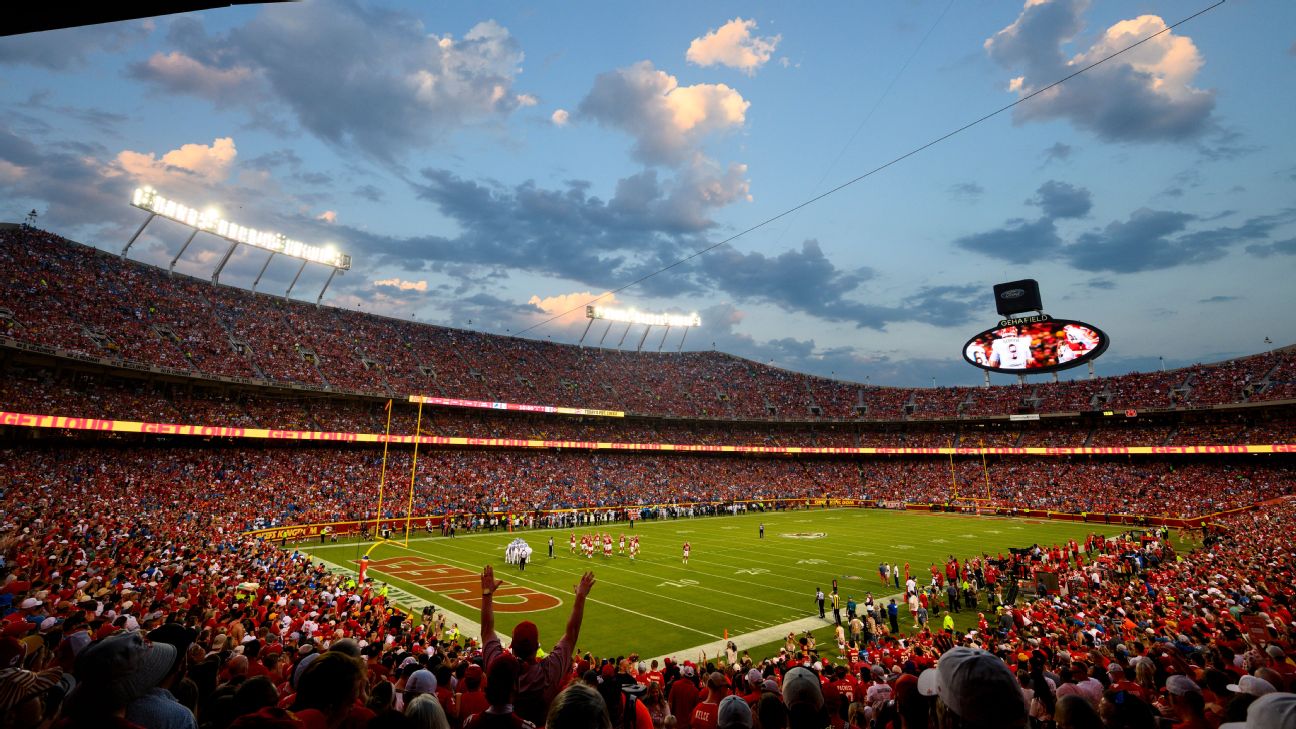
Posted on Jun 27
Missouri Governor expects aid plan to prevent Chiefs and Royals from moving: "We're going to be competitive.

u/alex •
KANSAS CITY, MO -- The future of professional sports in Kansas City hangs in the balance as discussions heat up regarding new stadiums for both the Kansas City Chiefs and the Kansas City Royals. Missouri Governor Mike Parson has expressed his determination to develop an aid plan that would prevent these beloved teams from relocating across the state line to Kansas. This battle for the stadiums has captured the attention of fans and policymakers alike, raising questions about the economic impact and public subsidies involved.
Kansas recently approved a financing plan that would cover up to 70% of the cost for new stadiums for the Chiefs and the Royals. This move has put pressure on Missouri to respond and secure the future of these teams within its borders. Governor Parson acknowledges the competitive nature of this situation but remains committed to finding a solution that benefits the taxpayers of Missouri.
For over 50 years, the Chiefs and the Royals have called eastern Kansas City home, playing side-by-side in their respective stadiums. However, the leases for both venues are set to expire in 2031, prompting discussions about the teams' long-term plans. Royals owner John Sherman has already voiced his preference for a new downtown stadium and made it clear that the team will not continue playing at Kauffman Stadium beyond the 2030 season.
Efforts to secure public subsidies for new stadiums often involve leveraging one potential site against another. In April, Jackson County, Missouri, voters rejected a sales tax proposal that would have funded a downtown ballpark district for the Royals and a renovation of Arrowhead Stadium. The outcome of this vote showcased the mixed opinions among residents regarding public funding for sports facilities.
The construction of new stadiums aims to generate revenue through luxury suites, dining establishments, shopping centers, and other developments surrounding the venues. Proponents argue that these investments can boost local tax revenue and create jobs. However, economists caution that stadiums often divert consumer spending from other entertainment options and may not generate enough economic activity to offset public subsidies.
Governor Parson is determined to present a viable plan for the Chiefs and the Royals that would require legislative approval. He believes that by the end of this year, a proposal will be in place to ensure the teams' future in Missouri. The discussions between the sports teams and the Kansas Department of Commerce in neighboring Kansas could begin soon, but no specific timeline for finalizing a deal has been established.
Governor Parson emphasized the significance of the Chiefs and the Royals as major businesses in the region. He acknowledges the competition from Kansas but maintains that any deal brokered must be beneficial to the taxpayers of Missouri. Meanwhile, Patrick Lowry, a spokesperson for the Kansas Department of Commerce, indicated that discussions between the sports teams and their agency could commence at any time, although no definitive timeline for reaching an agreement has been set.
As the battle for the stadiums unfolds, fans and residents anxiously await a resolution that will secure the future of professional sports in Kansas City. The economic impact, public subsidies, and the long-standing legacy of these teams are all factors that weigh heavily in this high-stakes negotiation. Only time will tell whether the Chiefs and the Royals will continue to call Kansas City their home or embark on a new chapter across the state line.
